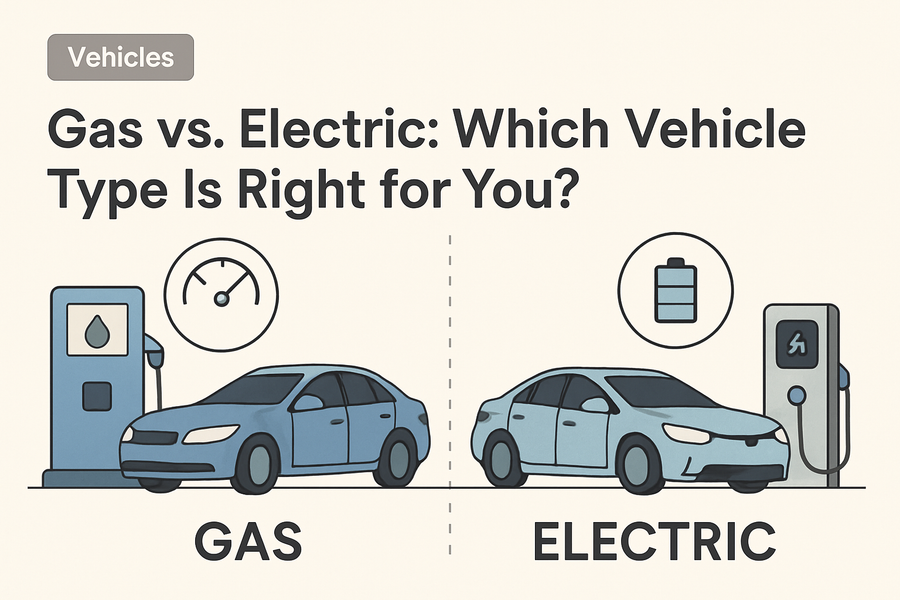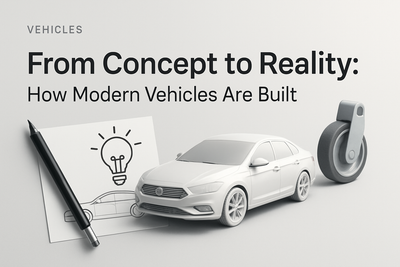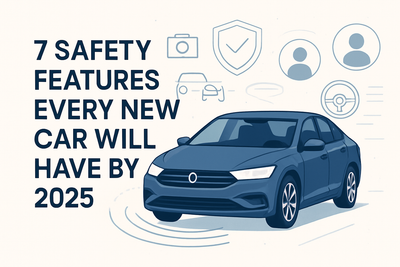Gas vs. Electric: Which Vehicle Type Is Right for You?
Introduction
The automotive landscape is undergoing a major transformation. With electric vehicles (EVs) gaining popularity and traditional gas-powered cars still dominating the roads, making the right choice can be overwhelming. Whether you're looking to reduce your carbon footprint, save on fuel costs, or simply want the most reliable ride for your lifestyle, understanding the pros and cons of each vehicle type is crucial.

In this post, we'll dive into the key differences between gas and electric vehicles, helping you determine which one best suits your needs and preferences.
Fueling: Gasoline vs. Electricity
Gas-Powered Vehicles
Gas-powered cars run on internal combustion engines fueled by gasoline. They're widely available and supported by extensive refueling infrastructure.
Pros:
- Refueling is quick and accessible almost everywhere
- Generally lower upfront cost
- Longer range per tank
Cons:
- Dependent on fluctuating fuel prices
- Higher long-term maintenance costs
- Produces emissions contributing to pollution
Electric Vehicles (EVs)
EVs are powered by rechargeable batteries and electric motors.
Pros:
- Zero tailpipe emissions
- Lower cost per mile
- Fewer moving parts = less maintenance
Cons:
- Limited charging stations in some areas
- Longer charging times
- Higher initial purchase cost (although decreasing with incentives)
Maintenance and Longevity
Gas vehicles have complex engine systems requiring regular oil changes, transmission repairs, and exhaust maintenance. In contrast, EVs have fewer components that wear out over time.
EVs typically require:
- Tire rotations
- Brake fluid replacement
- Occasional battery checks
Result: Electric vehicles tend to offer lower lifetime maintenance costs compared to their gas counterparts.
Environmental Impact
One of the strongest arguments for EVs is their environmental benefit. Since they produce no direct emissions, they're better for reducing urban air pollution and lowering overall greenhouse gases—especially when charged using renewable energy.
Gas vehicles emit CO₂ and other pollutants, contributing to climate change and health issues.
Verdict: If sustainability is a priority, EVs are the better choice.
Driving Experience
Electric vehicles provide instant torque and a quieter driving experience. Many drivers are surprised by how smooth and responsive EVs feel.
Gas vehicles, while offering variety in performance and engine sounds that enthusiasts love, can feel less refined in comparison.
Note: EVs often include cutting-edge tech features, while gas vehicles may lag behind unless they’re newer models.
Cost Comparison
While EVs generally come with a higher upfront price tag, government incentives, lower fueling costs, and reduced maintenance can make them more affordable over time.
Check for rebates, tax credits, and local incentives that can significantly reduce the cost of an EV.
Total Cost of Ownership Tip: Calculate both short-term and long-term expenses (fuel, maintenance, taxes) to get a complete picture.
Which One Is Right for You?
Choose a Gas Vehicle If You:
- Drive long distances frequently without access to charging
- Want a lower upfront cost
- Prefer traditional driving experiences
Choose an EV If You:
- Want to reduce your environmental impact
- Have access to home or workplace charging
- Are looking for lower long-term costs
Conclusion
Choosing between a gas and electric vehicle ultimately depends on your personal priorities. If convenience and initial savings matter most, a gas car might suit you better. But if you're looking ahead at cost savings, low maintenance, and environmental responsibility, an electric vehicle could be the smart move.
Take time to assess your driving habits, budget, and access to charging infrastructure. The future of transportation is evolving—make sure your next vehicle aligns with your life today and tomorrow.








